Beekeeping for beginners – how to keep bees in your backyard
Learn about beekeeping for beginners for your own source of delicious honey and to help keep your garden productive and colorful

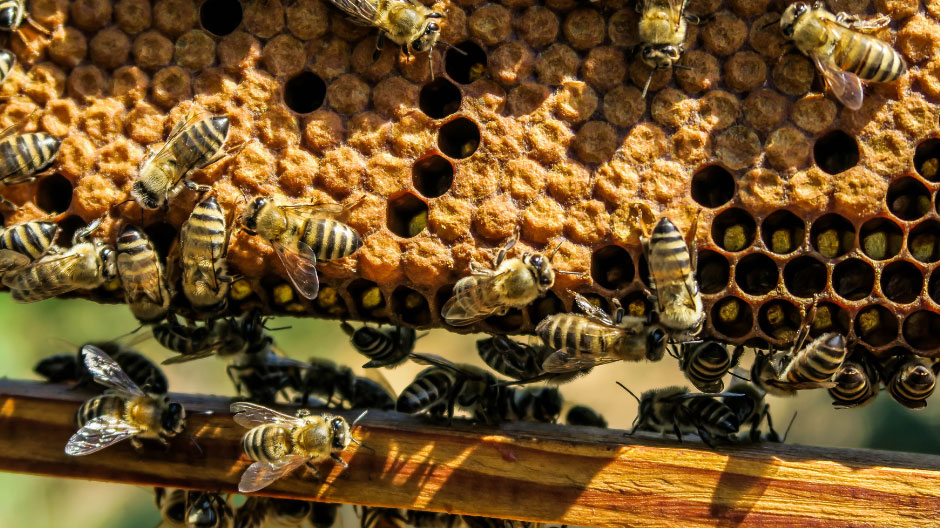
With many of us wanting to be more self sufficient, beekeeping for beginners has seen a surge in popularity over the last decade.
Many people also want to learn how to keep bees as they recognize the important part bees play in pollinating many of the plants in our gardens, and the foods that we eat.
With bee populations declining at an alarming rate, every gardener can do their bit to help, and keeping beehives in your back yard and providing a safe habitat for them can be added to your garden ideas, along with planting pollinator friendly flowers and other wildlife garden ideas.
Beekeeping for beginners – the benefits
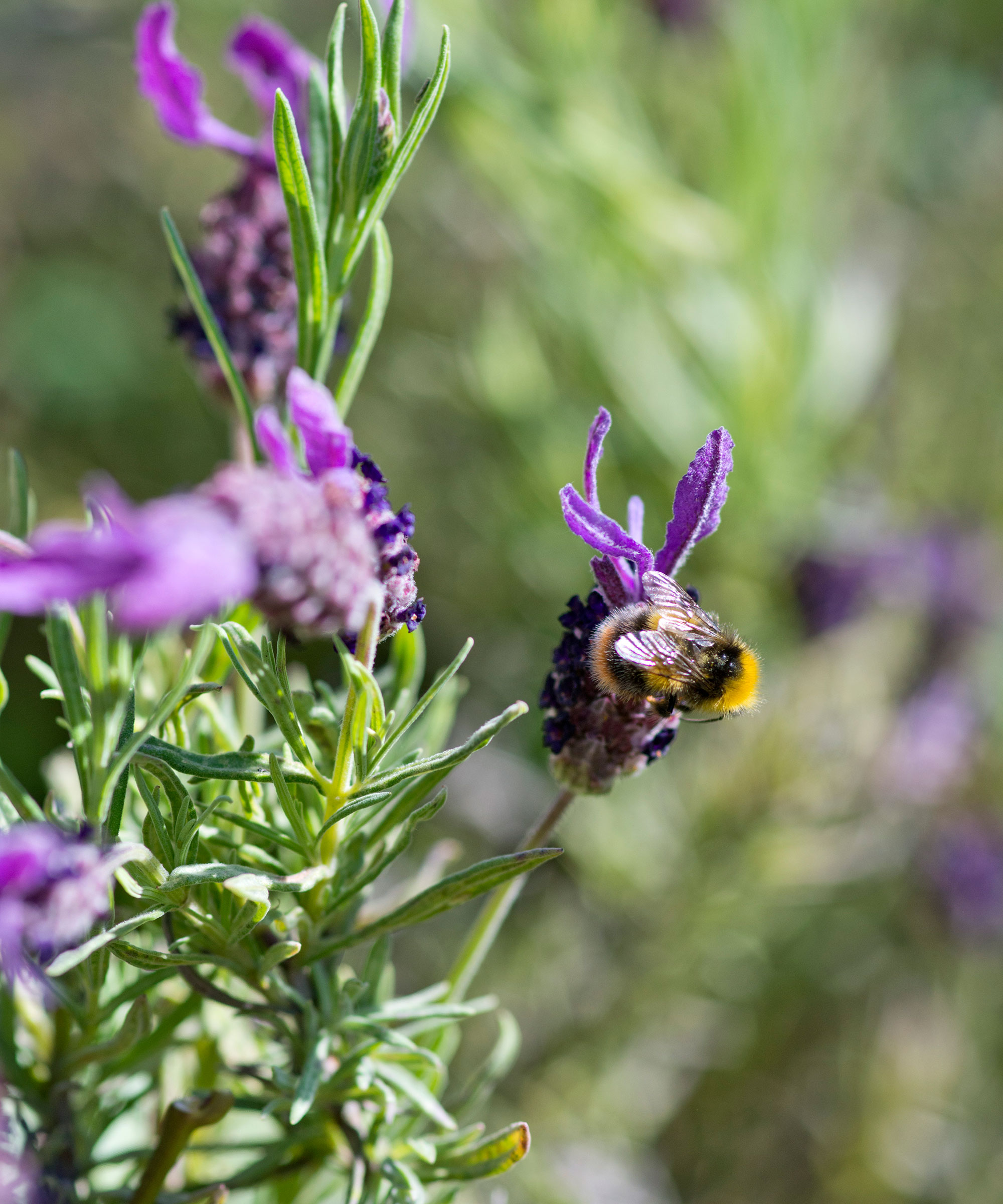
Along with the environmental benefits of helping the survival of crucial pollinators, there are many personal benefits that beekeeping for beginners can provide, too. Plus, adding flowers that attract bees to your backyard is an easy way to make your plot more environmentally friendly.
'It's a fascinating subject to study, it's relaxing and stress relieving, it improves the pollination of garden crops and flowers,' are among the many benefits listed by Anthony from Beekeeping Insider.
Other benefits of learning how to keep bees include 'exercise, social opportunities to meet with other beekeepers, and learning new skills and a fun hobby,’ explains Anne Rowberry, Chair of the British Beekeepers Association.
‘Beekeepers gain more insight and knowledge of the environment, and what flowers to plant. Watching bees foraging on the flowers for pollen or nectar is fascinating,’ she adds. This can help inform your decisions as a gardener when thinking of flower bed ideas.
Design expertise in your inbox – from inspiring decorating ideas and beautiful celebrity homes to practical gardening advice and shopping round-ups.
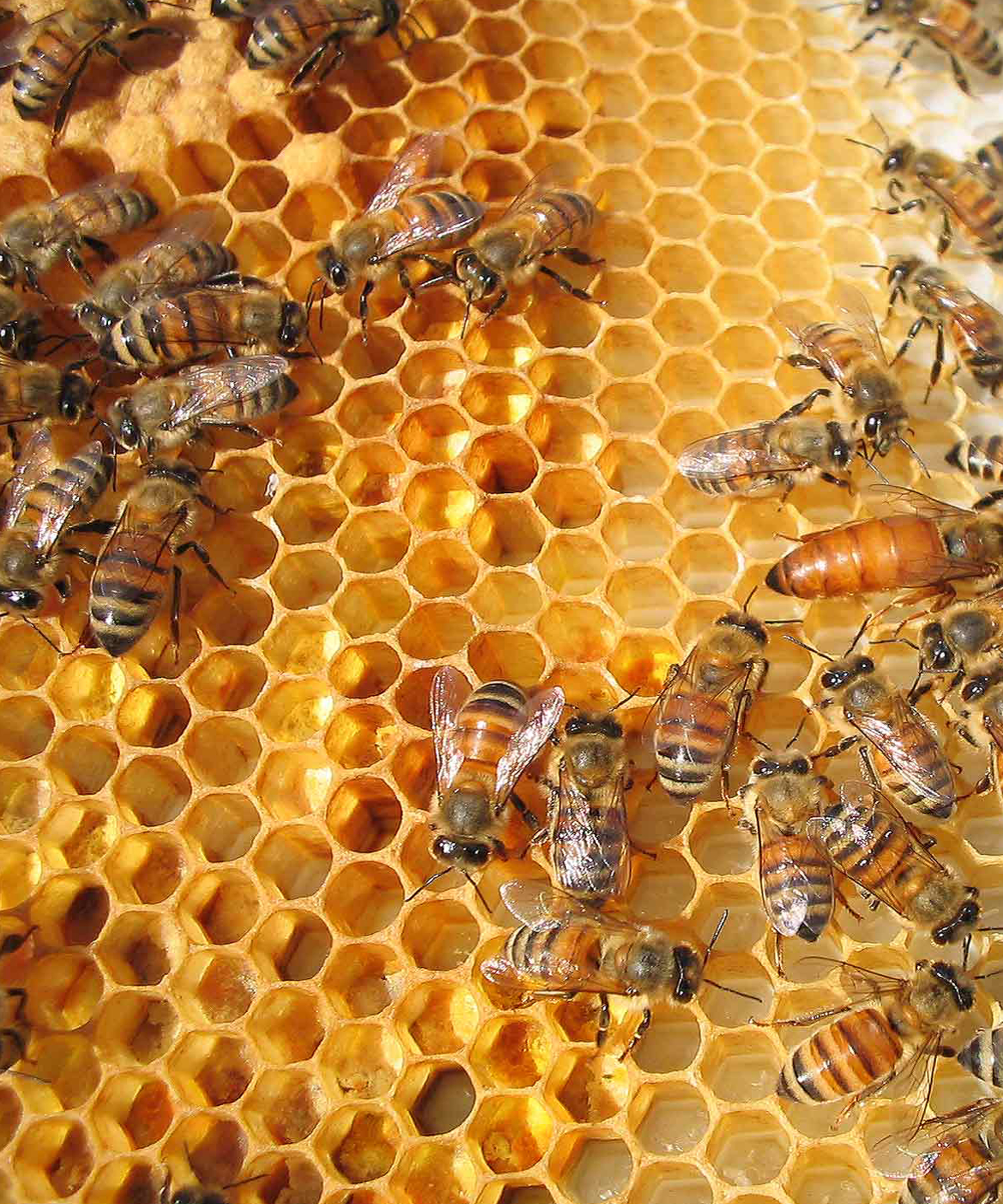
How do I start beekeeping for beginners?
Before starting down your road of beekeeping for beginners, it's important to do your research. Read up on the subject as much as you can, 'and connect with local beekeepers and beekeeping groups specific to your area to learn how others have found success,' advise the experts at Beebuilt.
The behavior of honeybees depends on the climate in which they live, so therefore the timing for beginning a hive will vary depending on your local climate and geography.
In some areas it will be late March to early May; other is might be April to June. Reach out to the local bee-keeping community when you are learning how to keep bees. 'Beekeepers will be pleased to help, and many will act as a mentor for a new beekeeper,’ says Anne.
You need to plan in advance and order your beehives and equipment as soon as possible in the year, so that you are fully prepared by spring for the arrival of your bees, they advise at Beebuilt.
There are many people who try beekeeping as part of their backyard farming, and it is a rewarding and enjoyable addition to a more self-sufficient lifestyle.
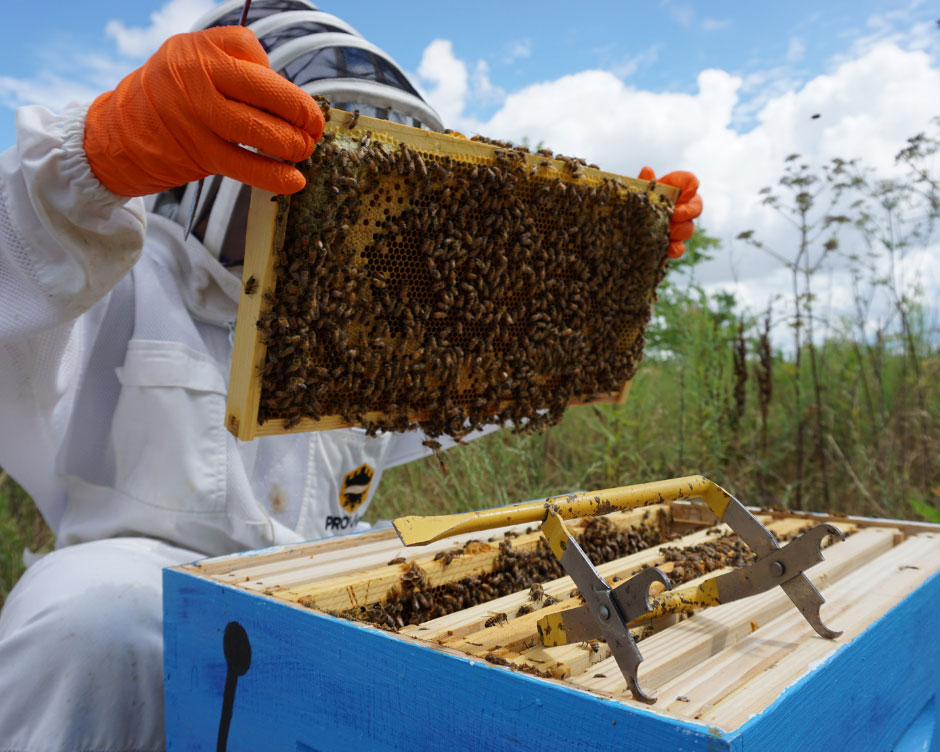
Is it hard to start beekeeping?
It is not hard to start beekeeping, but it is important to do it properly.
'I'd strongly recommend joining the local beekeeping organization, a beekeeping for beginners course is essential, and having a mentor helps,' explains Professor Pete Barrar, Director of the National Beekeeping Centre Wales.
'In the UK, support can come from the local Seasonal Bee Inspectors whose services are free. They operate under the National Bee Unit. Also by joining your local beekeeping organization will give you access to help and advice from experienced beekeepers, who may also be able to supply a nucleus of bees to get you started, or help out dealing with swarms, aggressive bees and many other issues,' he adds.
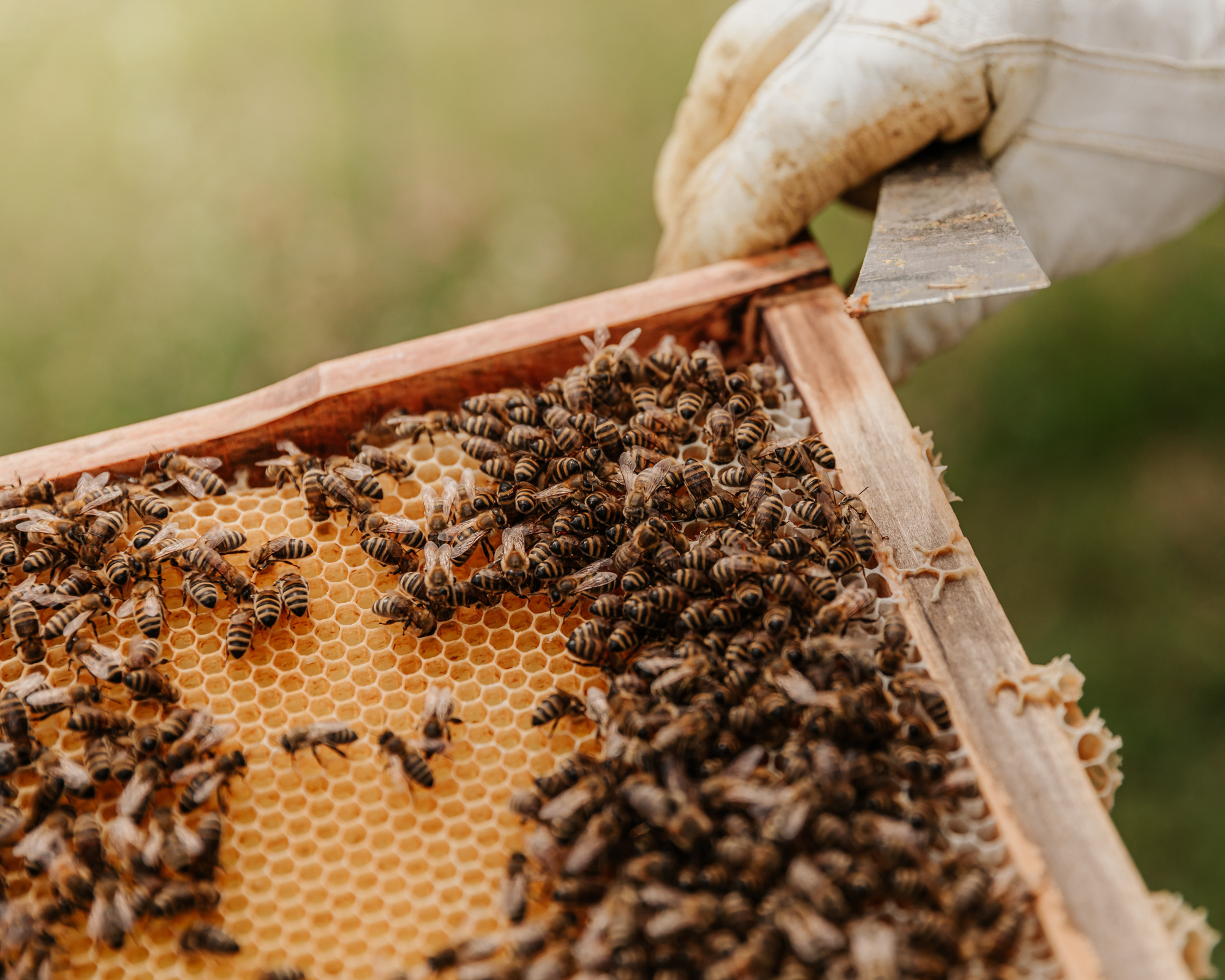
Do I need permission to keep bees?
Whether you need permission to keep bees will depend on where you live.
In the United States, it will vary from state to state whether you need permission to keep bees. Beekeeping laws will also vary from city to city. 'It's best to check with your local laws and authorities in the area where you live,' advises Anthony.
For instance, in Florida you can only keep bees on non-agricultural private land only if you have written permission, whereas in Minneapolis you need to attend a beekeeping course and get written consent from most neighbors living within a hundred feet of your property.
In some residential areas, if you are allowed to keep bees, there may be requirements limiting the number of hives or swarms you can keep, dictating if garden fence ideas are required or the maximum distance between hives and boundaries to name a few.
In the UK, on the other hand, there are surprisingly few restrictions regarding beekeeping for beginners. But while no permission is needed, you should ensure that the hives and the bees’ flight path would cause minimal nuisance to neighbors and the general public.
'Proper training in beekeeping skills is vital to be able to assess the suitability of apiary sites and to manage colonies to minimize swarming, especially in summer.
Don’t keep hives next to a through path, or where bees may easily go into neighbors’ buildings or down chimneys. Enclose the hives with a fence if you have young children or animals.’ explains Anne.
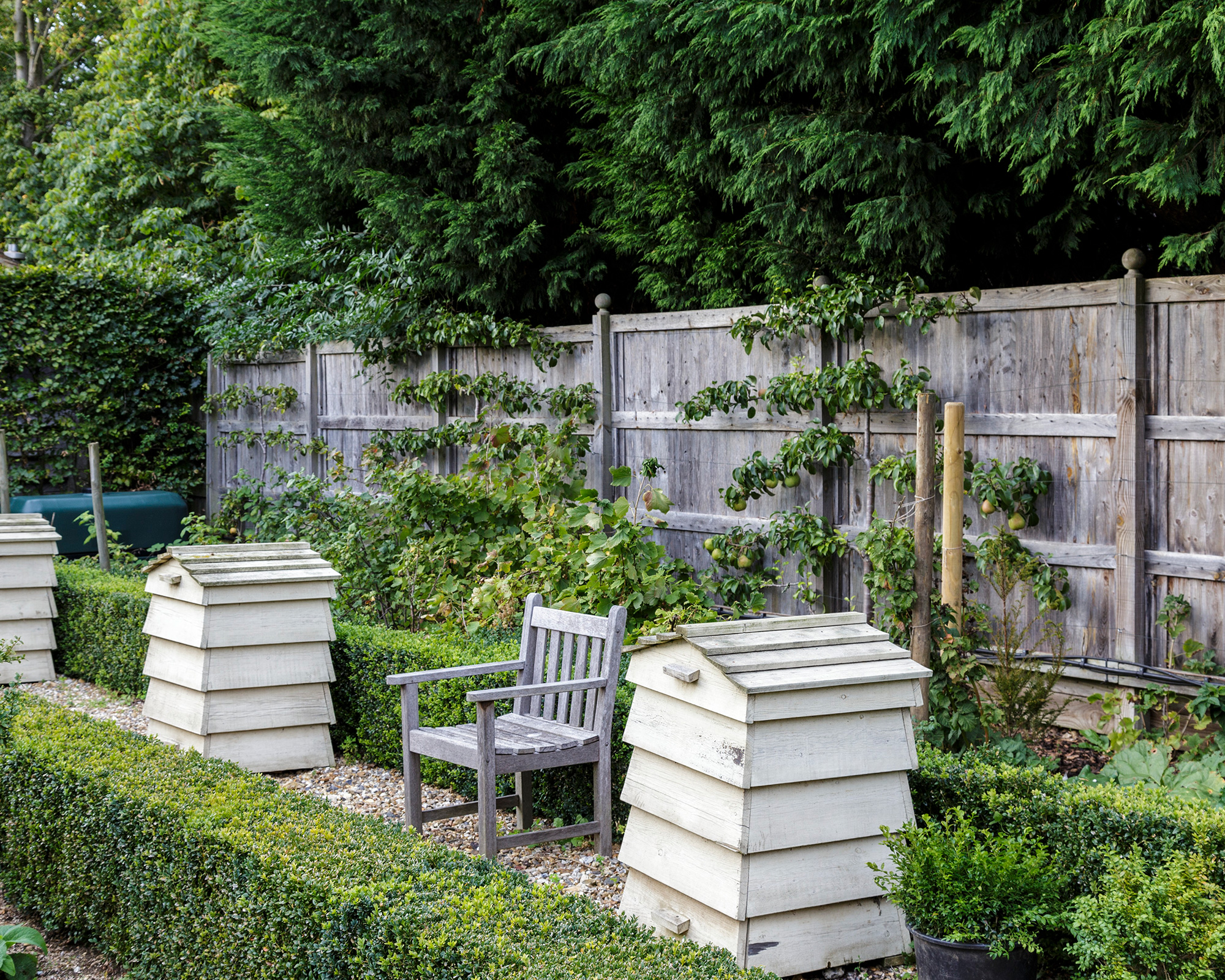
Can I keep bees in my backyard?
You can keep bees in your backyard – subject to the laws in the area where you live – but you need to make sure they have a clear flight path in and out of the hive.
'Orienting the hive so that bees fly across a path, patio area or part of the garden which is used regularly is not a good idea,' explains Pete.
In a more restricted area, such as an urban back yard, it is often a good idea to put fences or fast growing hedges with 3 feet or so or of the hive entrance. 'This will encourage the bees to fly upwards and get above head height,' Pete explains.
'I know people with hives in the garden of their urban property who never have problems. It’s always important to discuss what is going on with your neighbors and to make sure your bees remain gentle. If they start to get aggressive, then people can be stung. So, don’t go into the hive in wet or windy weather or particularly if a thunder storm is on the way – the bees don’t like it. It’s also a good idea to alert your neighbors to the possibility of swarming,' he adds.
If you don't think your neighbors will take kindly to the idea of hives next door, you might be able to find an 'out-apiary' where a landowner agrees for bees to be kept there.
As well as the space, 'assess if there is plenty of forage and flowering plants from January until October for the bees to feast on,' adds Anne.
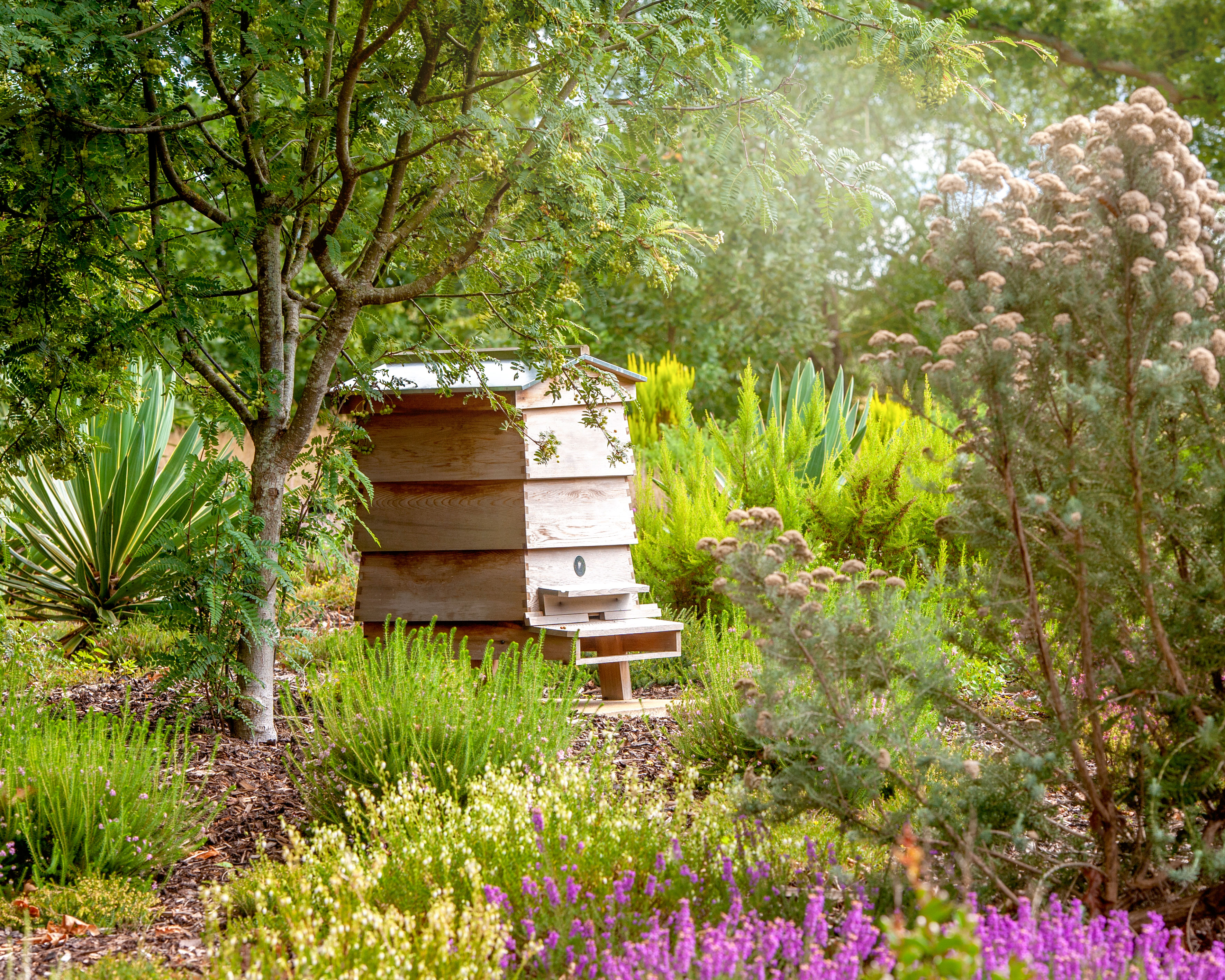
How much land do you need to keep bees?
You do not need a lot of land if you are considering how to keep bees. 'About 54 square foot is enough for a couple of hives,' explains Pete.
If there is livestock adjacent to the bees then the hives must be fenced off. If you are also considering keeping chickens, it is best to keep them separate. Sheep can scratch themselves on the hives and can knock them over; cattle or horses will kick them over.
‘I would not site hives closer than 10 feet to a boundary unless there is a 6 to 10 foot hedge or fence. If other beekeepers already have hives close by you may need to look to keep yours elsewhere and your local beekeeping organization can help,’ explains Anne.
'It is better to plan the apiary to have at least two hives, and each will need a minimum of 5 feet of space around it,' she adds.
Beehives are a great addition to kitchen garden ideas, as if you include some companion plants among your crops the bees can help to pollinate the plants and increase your homegrown yields.
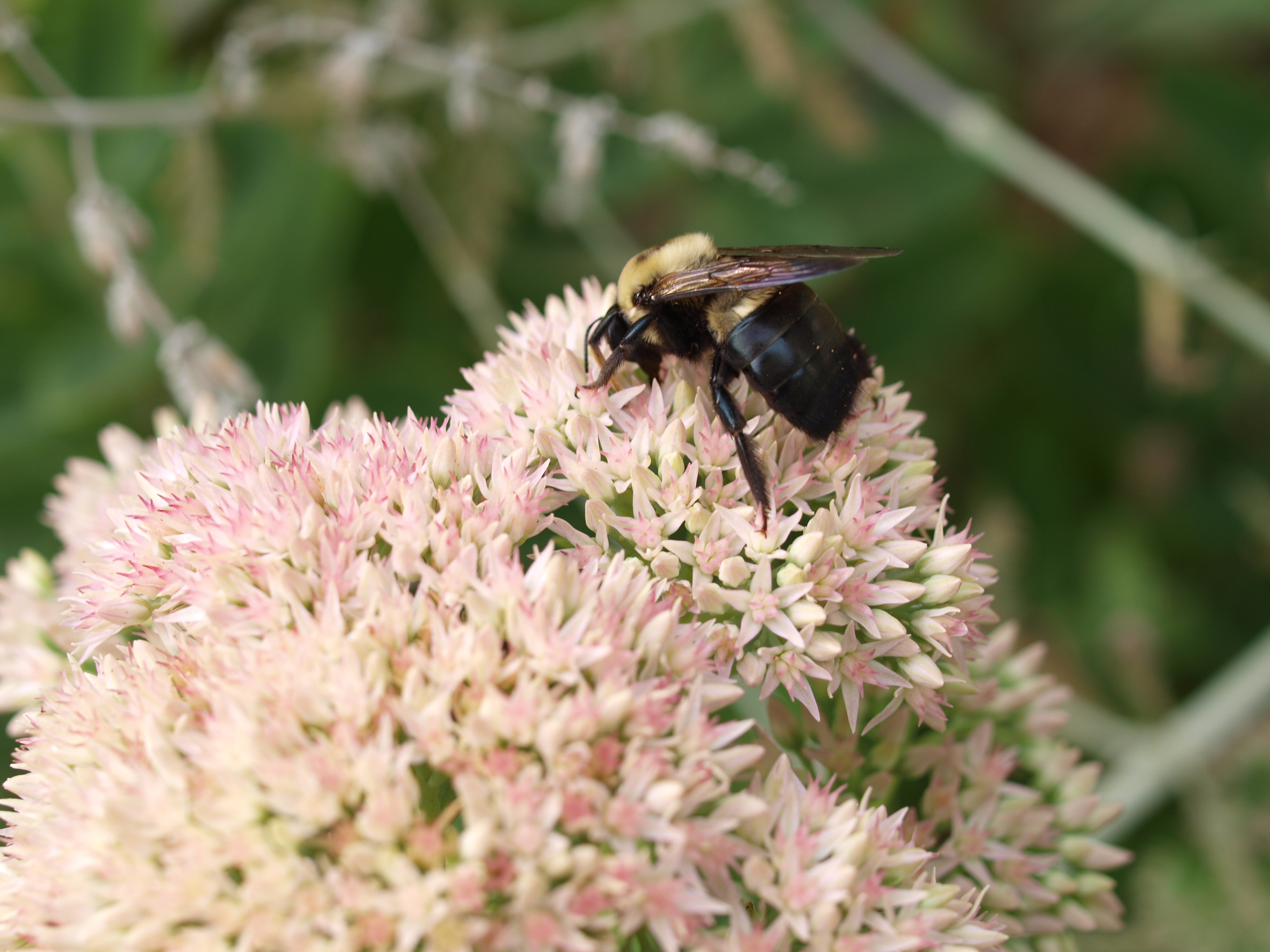
What do beginner beekeepers need?
A beginner beekeeper will need certain minimum equipment. This includes:
- A complete hive, such as a Langstroth, Warre, Top Bar, or National Hive in the UK
- A smoker to calm the bees
- Hive tool to open the hive
- A full bee suit with integral hood and veil
- Gauntlet gloves
- Bee brush
- Rain boots
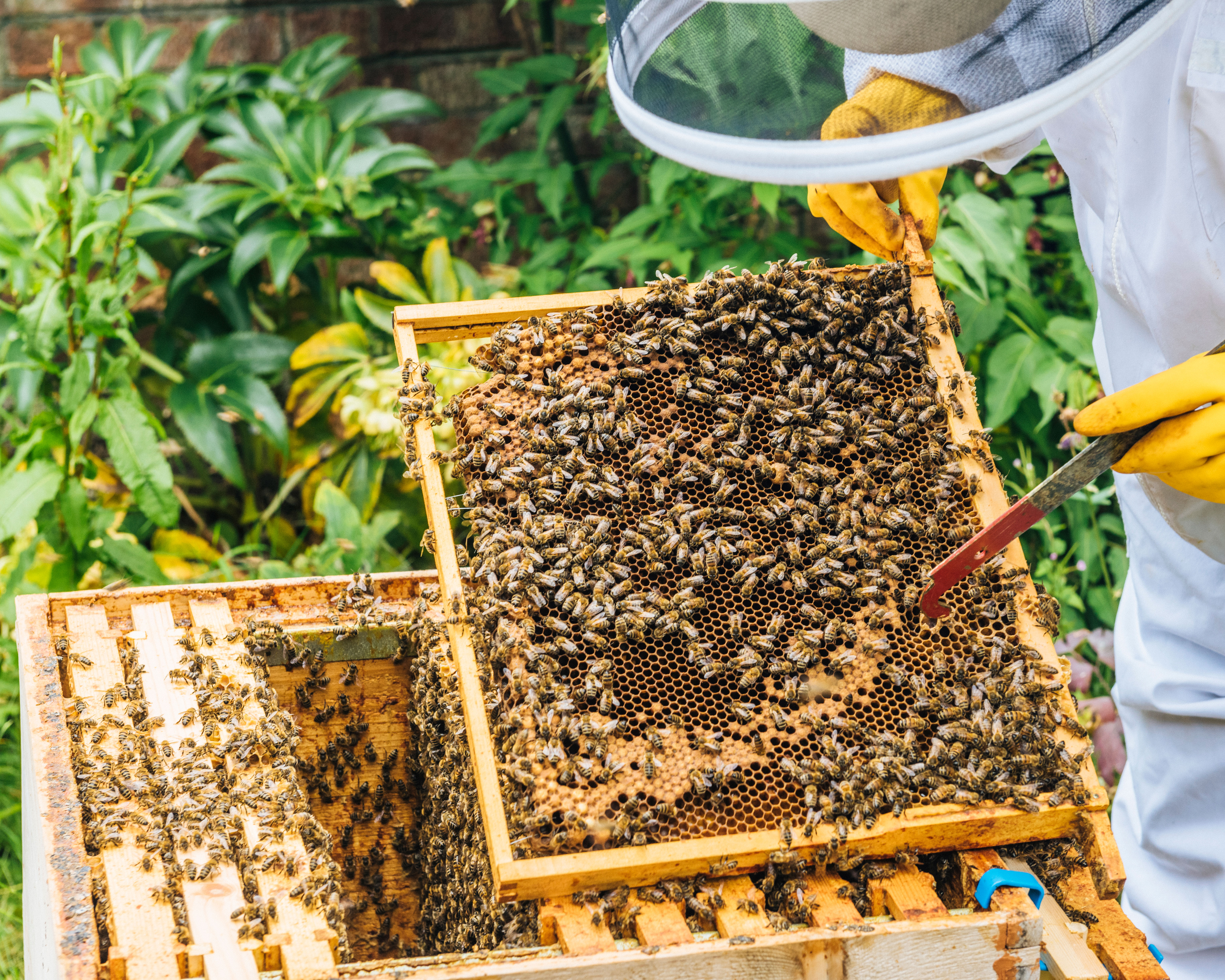
Is beekeeping an expensive hobby?
Beekeeping is not a particularly expensive hobby, but you will have more expenses in the first year when starting out, learning how to keep bees and buying the various pieces of equipment that you need. After that, the yearly cost will be a lot less.
Be prepared to spend about $500 - $700 /£350 – £500 initially on equipment, a training course, and the bees themselves.
The cost of bees starts at around $150/£110; a hive might cost from $150/£110, but also you need the protective clothing, the smoker and hive tool – from $160/£115 – and payment for beginner beekeeper courses and possibly permits, depending on where you live.
Where can you source bees?
‘It is best to source bees locally – ask a local club or beekeeper for advice – and start with a small colony nucleus; it will grow quickly if you buy it in late spring,’ advises Anne.
Bees will be better adapted to your local conditions if you buy from a local source.
There are three options when buying bees:
- A package. This is the most cost effective and a typical package of bees contains around 10,000 bees
- A nucleus colony – or nuc in beekeeping terms – is the next category up, and considered a more reliable start by some beekeepers because the colony is delivered in a more advanced state of growth. 'This is a small colony on five or six frames with a young mated queen and maybe 5,000 workers. These nucs generally become available in May or June,' explains Pete
- A full-sized colony is the most advanced option but the least common method of obtaining bees. With this you would collect a hive after it has successfully overwintered and you would become an instant beekeeper with an established population
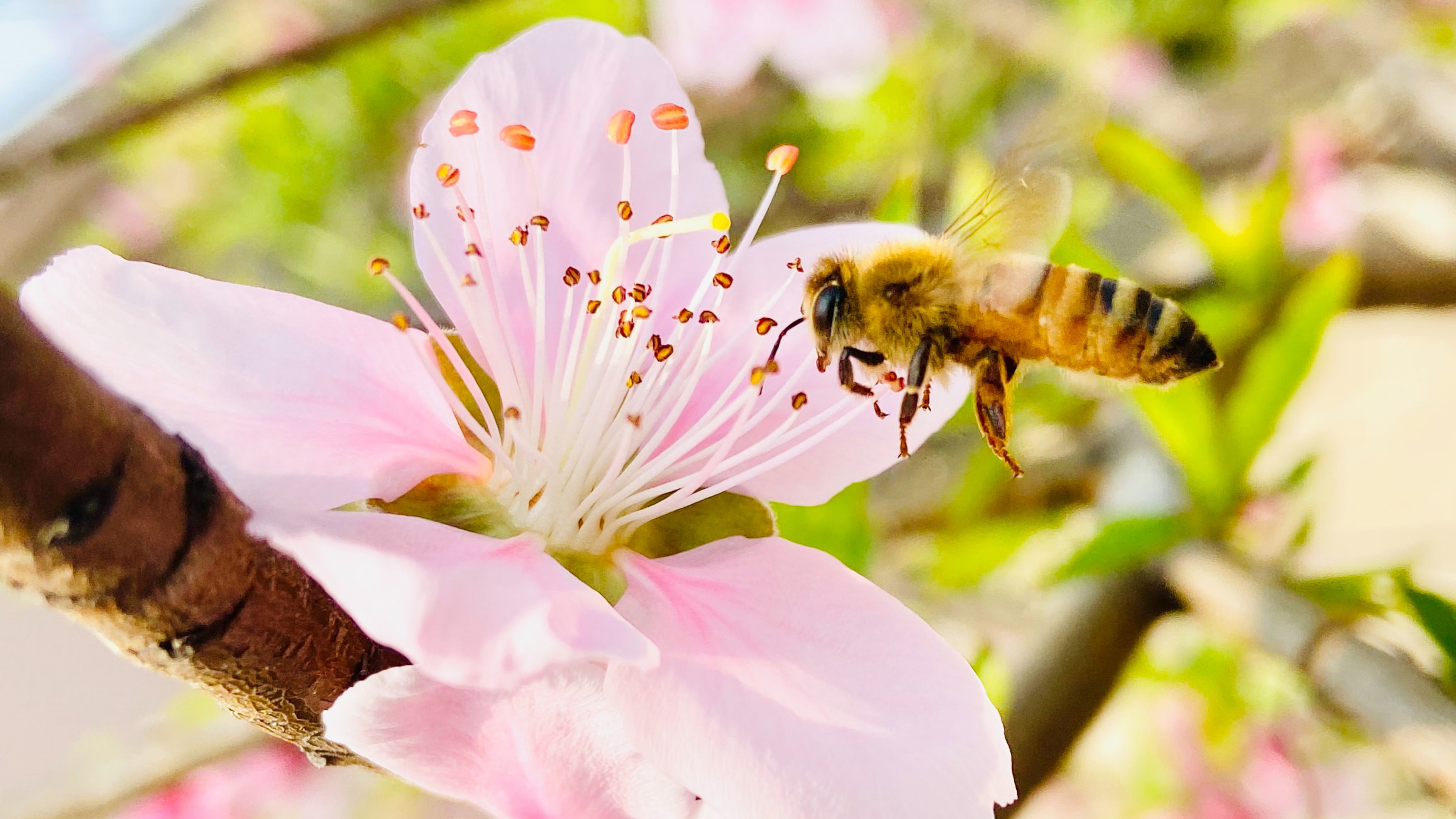
How time consuming is beekeeping?
Beekeeping is seasonal, so the amount of time you need to commit to it will vary throughout the year. Beekeeping for beginners may take more time as you learn the ropes, but once you have got into a routine it will take up less of your time.
‘You will need to spend about an hour each week from late March to September inspecting the hive to ensure the bees don’t swarm, and a little longer at times if you want to feed, treat or remove honey,’ advises Anne.
In fall and winter this reduces to a quick check every week to ensure they don’t need feeding, and time spent on maintaining, cleaning and repairing equipment.
'There are a few key things that the beekeeper must do. This includes: checking for disease or mite infestation regularly; treating for varroa; ensuring sufficient stores for the bees throughout the year; making sure the queen is in residence and she is laying; checking the bees have sufficient space in the hive; manage the swarming instincts of the bees. Also, make sure the hives are watertight and the bees are dry,' explains Pete.
Honey getting can be time consuming and very sticky, 'but your own honey is the best thing and it will taste like nothing else you’ve tried,' says Pete. Often your local beekeeping organization or association will lend out honey extractors to those in the association without them.
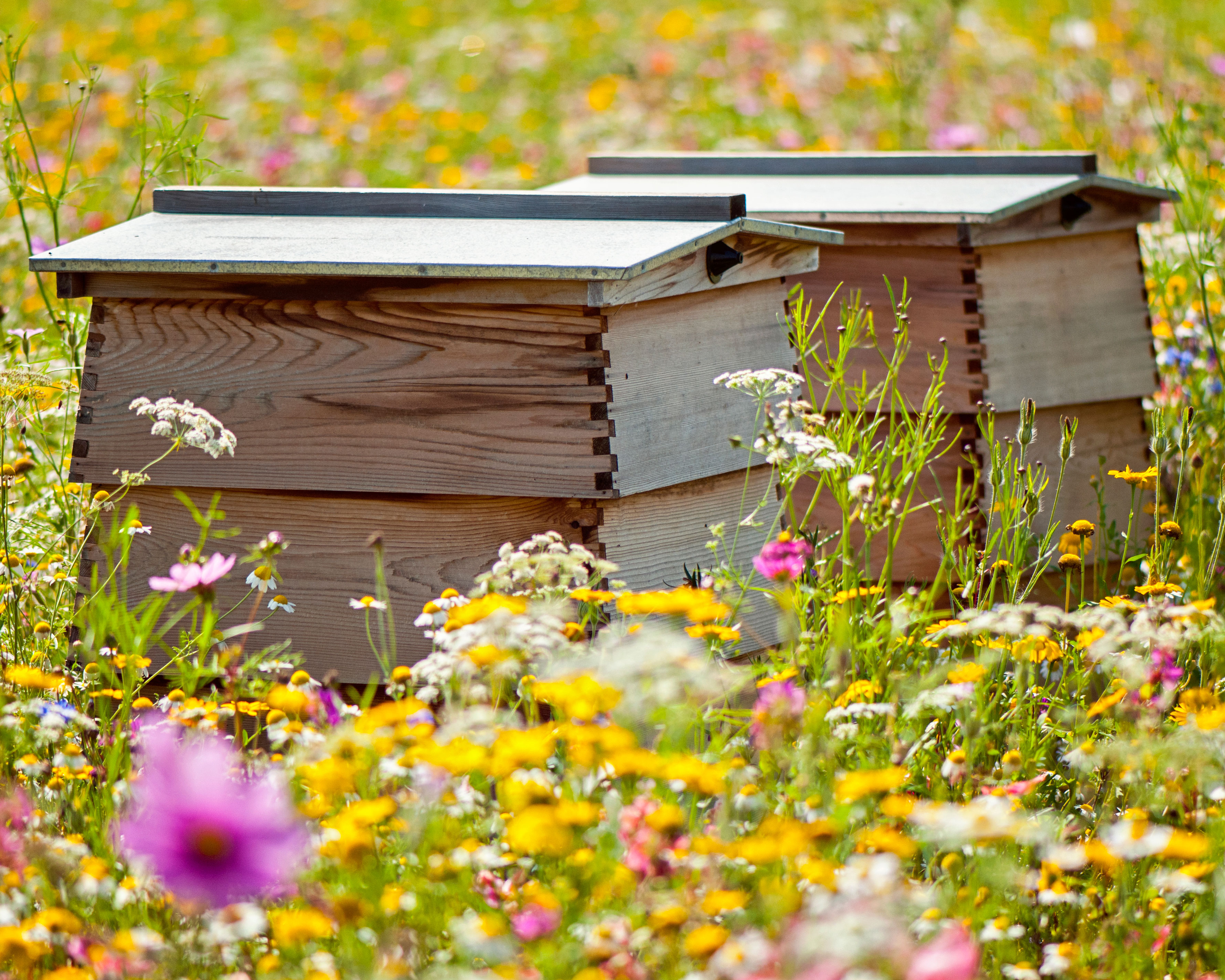
Should beehives be in sun or shade?
The answer is beehives should ideally enjoy some sun and some shade. According to the experts at beebuilt, if you have a spot that has early morning sun and some shade in the afternoon, that is perfect.
'If you live in a very warm climate, you will probably want more afternoon shade,' they add.
Bees are very adaptable creatures and can usually make almost any location work as long as there is food and water in the surrounding area.
Is beekeeping worth the money?
Ask any beekeeper if beekeeping is worth the money and the answer will be a resounding 'yes'.
In addition to the environmental and personal benefits mentioned above, you get a wonderful insight into the world of these fascinating pollinators.
'The social organization of bees is fascinating,' says Pete. '50,000 bees in a colony takes a lot of organization with the workers having a range of different jobs, not just collecting nectar and pollen. The queen spends most of her life laying up to 2,000 eggs a day. The female workers do all the work and comprise over 85 per cent of the, while the male bees, or drones, hang around in drone congregation areas in the sky hoping to mate with young virgin queens and don’t do much else actually!'
The rewards of beekeeping for beginners are immense – much more than the honey the bees share with us.
Rachel is senior content editor, and writes gardening content for homesandgardens.com, Homes & Gardens magazine, and its sister titles Period Living Magazine and Country Homes & Interiors. She has written for lifestyle magazines for many years, with a particular focus on gardening, historic houses and arts and crafts, but started out her journalism career in BBC radio, where she enjoyed reporting on and writing programme scripts for all manner of stories. Rachel then moved into regional lifestyle magazines, where the topics she wrote about, and people she interviewed, were as varied and eclectic as they were on radio. Always harboring a passion for homes and gardens, she jumped at the opportunity to work on The English Home and The English Garden magazines for a number of years, before joining the Period Living team.
